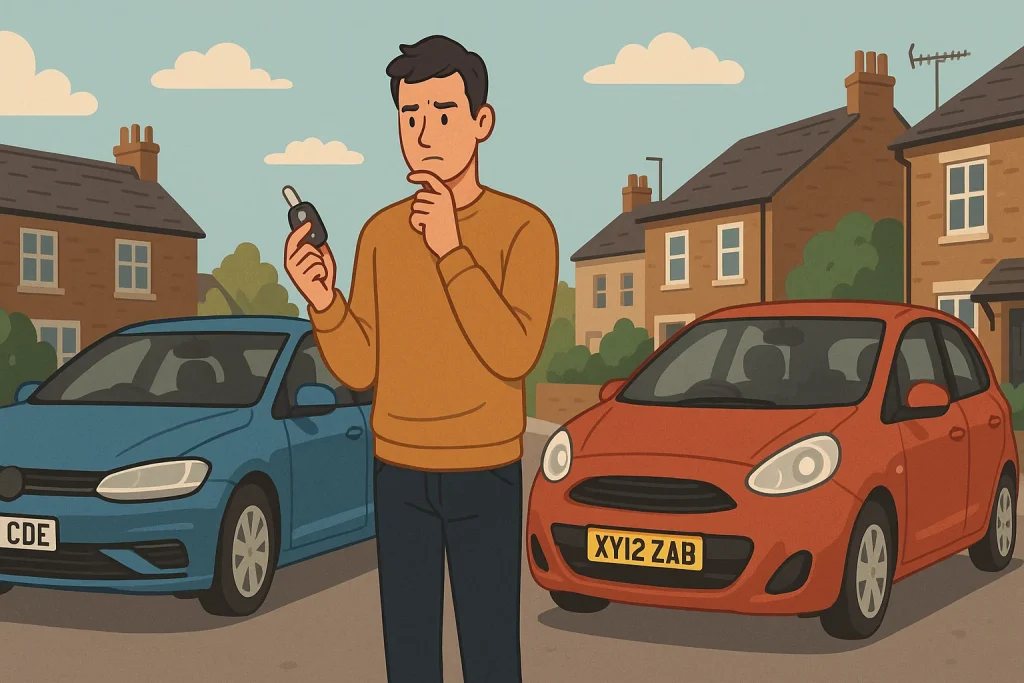Table of Contents
Driving in the UK without the proper insurance isn’t just risky, it’s illegal. But what if you need to drive a car that isn’t yours? Whether it’s borrowing a family member’s vehicle or taking a quick trip in a friend’s car, you might ask, what insurance allows you to drive any car?
The answer lies in a specific type of insurance extension called Driving Other Cars (DOC), usually associated with comprehensive car insurance policies. However, this cover comes with strict conditions and limitations.
In this guide, we explore what kind of insurance lets you legally drive any car, who qualifies, and what alternatives exist. We’ll also examine the risks of getting it wrong and how to ensure you’re covered in every situation.
What Does It Mean to Have Insurance That Allows You to Drive Any Car?
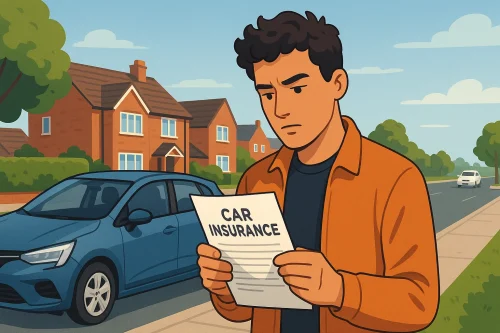
Insurance that allows you to drive any car refers to a specific clause or extension within your existing policy, commonly known as the Driving Other Cars (DOC) cover. This cover is often misunderstood, with many drivers assuming their comprehensive insurance automatically lets them get behind the wheel of any vehicle.
In reality, DOC cover is typically a limited feature, offering only third-party protection, meaning you’re covered for damage you cause to others, but not for any damage to the car you’re driving. It’s intended for emergency or incidental use, not regular or planned driving.
So while the idea of being able to legally drive any vehicle with your insurance is appealing, the practical application is far narrower than most drivers realise.
What Type of Insurance Allows You to Drive Any Car Legally in the UK?
If you’re wondering whether your car insurance lets you legally drive someone else’s vehicle in the UK, it’s essential to understand the specific policy features that allow this, especially the Driving Other Cars (DOC) cover.
Driving Other Cars (DOC) Cover
The primary type of insurance that allows you to drive any car is DOC cover, which may be included in a fully comprehensive car insurance policy. However, this inclusion is not automatic.
- DOC cover enables the policyholder to drive a vehicle not listed on their policy.
- The cover provided is typically third-party only.
- DOC does not extend to vehicles owned by the driver, leased, rented, or under finance agreements.
Inclusion Criteria
Insurers may include DOC automatically or offer it as an optional add-on. Even then, eligibility and enforcement conditions apply, including:
- Minimum age restrictions
- No prior disqualifications or convictions
- Valid reasons for driving the other car
In short, DOC cover gives limited and conditional access to other vehicles, but it is not a green light to drive any car without caution or confirmation.
Does Fully Comprehensive Insurance Always Allow You to Drive Any Car?
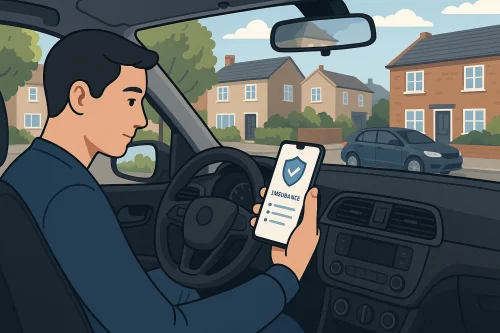
Many UK drivers mistakenly believe that having a fully comprehensive car insurance policy automatically allows them to drive any car. This assumption can be risky.
While Driving Other Cars (DOC) cover was once included as standard in many comprehensive policies, this is no longer the case. Insurers now impose stricter terms due to increased risk and past misuse.
Insurance providers vary greatly: some offer DOC only to drivers above a certain age or with a clean claims history, while others exclude it completely. Always check your Certificate of Motor Insurance; if DOC isn’t mentioned, it’s not included.
Even when available, DOC is intended for occasional or emergency use, not regular driving. For frequent access to another car, consider becoming a named driver or taking out temporary insurance.
Who Qualifies for Insurance That Lets You Drive Other Cars?
Eligibility for DOC cover is limited. Insurers are selective due to the increased risk associated with driving unfamiliar vehicles. Several key factors determine whether you qualify:
- Age: Typically, only drivers aged 25 or over are eligible. Some policies may require the driver to be 30 or older.
- Licence History: A clean driving record, with no convictions or disqualifications, improves your chances.
- Main Vehicle Status: Your own car must be insured and available, not written off or sold.
- Permission: You must have the owner’s consent to drive their vehicle under DOC.
- Ownership: DOC cover does not apply to cars you own, hire, lease, or have on finance.
Failure to meet these criteria means your DOC cover could be invalid, even if listed on your policy.
How Do You Check if Your Insurance Allows You to Drive Any Car?
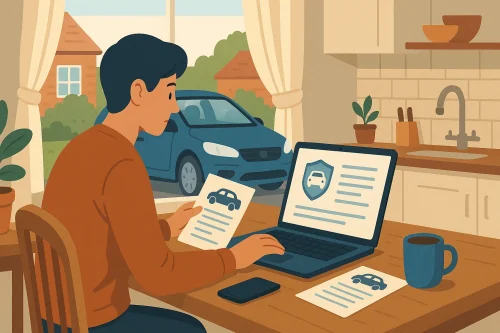
Understanding whether you’re covered under DOC requires careful reading of your insurance documents. The key source is your Certificate of Motor Insurance, which outlines the terms of your policy.
Look for a line that states:
“The policyholder is entitled to drive other vehicles not owned by them, with the owner’s permission, on a third-party basis.”
If this is present, and you meet all eligibility criteria, then DOC may be in effect. However, if it’s absent, or conditional, you should not assume you’re covered.
It’s also advisable to contact your insurer directly to confirm, especially before driving a vehicle that isn’t yours.
What Are the Limitations of Insurance That Allows You to Drive Another Car?
While having insurance that allows you to drive any car sounds appealing, DOC cover comes with strict limitations.
Here’s what typically isn’t covered:
| Limitation | Explanation |
| Vehicle Ownership | You cannot drive a car that you own, hire, lease, or finance. |
| Type of Cover | DOC provides third-party only cover, damage to the vehicle you’re driving isn’t included. |
| Frequency | Only for occasional or emergency use, not for regular driving. |
| Age Restrictions | Usually limited to drivers aged 25 and over. |
| Non-commercial Use | DOC doesn’t cover use for hire, reward, or commercial purposes. |
Understanding these limitations is crucial to avoid breaching policy terms and facing fines, penalty points, or worse.
What Alternatives Exist If Your Insurance Doesn’t Allow You to Drive Any Car?
Not everyone qualifies for DOC, and even those who do may find it insufficient. Fortunately, there are safer and more flexible alternatives:
- Named Driver Cover: If you plan to use someone else’s car regularly, becoming a named driver on their policy ensures full coverage.
- Temporary Car Insurance: Offers comprehensive cover for short periods, from a few hours up to 28 days. Ideal for test drives, one-off trips, or emergencies.
- Pay-As-You-Go Insurance: For occasional drivers, pay-per-mile or short-term cover can offer cost-effective protection.
These alternatives are often more robust and less restrictive than DOC, especially for younger or infrequent drivers.
What Happens If You Drive a Car Without Insurance That Allows You to Drive Any Car?
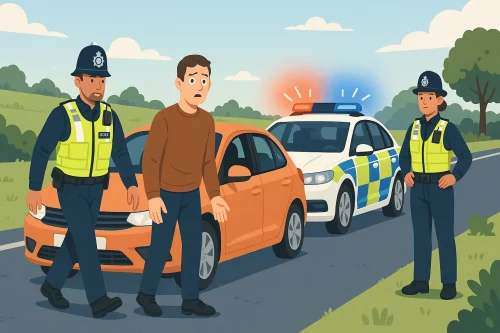
Driving without the appropriate insurance is a criminal offence in the UK. If you assume you’re covered by DOC but aren’t, you could face severe consequences, including:
| Offence | Potential Penalty |
| Driving without insurance | £300 fixed penalty + 6 penalty points |
| Court conviction | Unlimited fine + possible disqualification |
| Vehicle seizure | Police may impound and destroy the vehicle |
Additionally, an uninsured driver involved in an accident may be personally liable for all damages, potentially running into thousands of pounds. Always double-check your insurance cover before driving another vehicle.
How to Find the Best Insurance That Allows You to Drive Any Car in the UK?
If you’re looking for insurance that lets you drive any car in the UK, understanding the Driving Other Cars (DOC) feature is essential.
Tips for Finding DOC-Inclusive Cover
If DOC cover is essential for your lifestyle, consider the following steps when shopping for insurance:
- Use comparison platforms to filter for policies that include DOC.
- Check eligibility rules before purchasing.
- Read the policy wording and the Certificate of Motor Insurance carefully.
- Ask your insurer directly, some may offer DOC as an optional upgrade.
- Review exclusions related to age, driving history, and ownership.
Features to Consider
| Feature | Importance |
| DOC inclusion | Confirms if the policy allows driving other cars |
| Type of DOC cover | Typically third-party only |
| Temporary insurance options | Ideal for short-term needs |
| Named driver flexibility | Best for regular use of another vehicle |
| Customer service | For quick confirmation and support |
Choosing the right insurance requires balancing your needs with your eligibility. Not every driver qualifies for DOC, but viable alternatives exist.
Conclusion
Understanding what insurance allows you to drive any car is vital for UK motorists. While DOC cover offers a solution for emergency or infrequent driving, it’s not a universal license to drive any vehicle. It comes with significant restrictions, and many drivers may not even be eligible.
For safe and legal driving, always verify your policy documents and explore alternatives like temporary insurance or becoming a named driver. Being informed is the first step to avoiding costly mistakes and ensuring peace of mind on the road.
Frequently Asked Questions
Can a 24-year-old get insurance that allows them to drive any car?
Typically, no. Most insurers require drivers to be 25 or older for DOC cover. Those under 25 should consider temporary insurance or being added as a named driver.
Is temporary insurance better than DOC cover for occasional use?
Yes. Temporary insurance offers comprehensive coverage, unlike DOC, which is usually third-party only. It’s more reliable for occasional or planned use.
Will driving another car affect my no-claims discount?
Driving under DOC won’t usually affect your no-claims discount, as it’s not linked to your main policy unless you’re found at fault in an incident.
Can DOC cover be added to my existing car insurance?
In some cases, yes. Some insurers offer DOC as an optional add-on. However, eligibility criteria must still be met.
Does my company car insurance allow me to drive personal vehicles?
Generally, no. Company car policies are specific to business use and rarely include DOC privileges for personal vehicle use.
Can I get insured to drive any car for just one day?
Yes. Temporary car insurance can provide coverage from as little as one hour to 28 days, and often includes comprehensive protection.
Are there specific insurers that specialise in DOC-inclusive policies?
While some insurers are more flexible, DOC cover availability changes frequently, and it’s essential to check each policy individually. Specialist brokers may help identify suitable policies.




